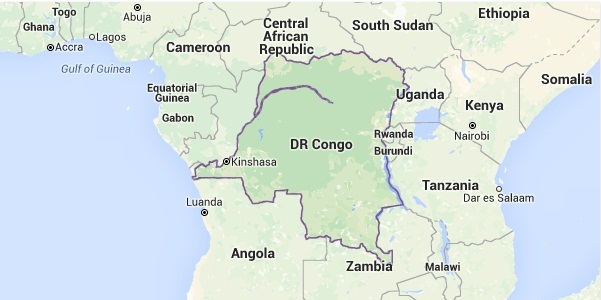
Odur says the Uganda-Congo border is porous and given that the hospital is just 7kms away makes it very easy for them to be targets by criminals. But he says he cannot tell how, if at all, drugs could be stolen from the hospital.
He speaks of a system innovated by the Ministry of Health to control any leakages at the hospital. It is called the ‘Daily Dispensing Log’ where all patients that come to the facility in a day are registered and given patient numbers. The same log has provisions where drugs and their quantities are recorded to ensure accountability.
In addition to this, a medical worker is supposed to sign a drug requisition form which is authorised by the facility in charge before being given medicines.
Odur says they follow this religiously. But he also admits they have had recording gaps he calls minor that they keep improving when they spot them.
“There are people who will come straight to the medicines counter without getting numbers first may be because they are relatives or friends of the person giving out drugs. We will miss those ones even when drugs were not necessarily stolen,” he says.
He appears unaware that the criminals could also be taking out drugs in very small quantities to to be noticed. A package seen by The Independent had medicines that were not packaged in the usual dispensing boxes or tins. The various medicines appeared to have been poured randomly in one big package.
Arua not alone
And Arua is not the only Ugandan border town with the DR Congo via which stolen medicines and sundries are smuggled out. Kasese district in South Western Uganda is another one.
Here, the Resident District Commissioner (RDC), Lt. Col James Mwesigye, told The Independent that he has battled medicine thieves at the Congo – Mpondwe border in the district.
He said he has encountered techniques where hospital workers would move out with a small package each day, meet at some point, and put the different medicines together in one package for sale.
He said between 2015 and 2016, they intercepted a lot of government drugs that were going through the Mpondwe border. They found that health workers are either accomplices or that, since they are often absent from their duty stations, the drugs are stolen when they are absent.
“We increased surveillance and held operations every day,” Mwesigye said, “One day we unpacked a truck full of fish only to find medicines below them.”
He says, in his view, solving the problem requires strict checking at border points since not much can be done at the hospital level.
Dr. Patrick Anguzu, the Arua District Health Officer agrees. He says hospitals are constantly working to tighten security measures against drug theft; including surveillance, regular pill counts and room restrictions. But he says these are never enough to stop drug thefts.
“It can be hard to anticipate the strategies that criminals use,” he says.
He says the stolen drugs from Uganda are now being sold in the DR Congo because all efforts required to make it impossible for these drugs to be sold in Uganda have been done.
“The criminals now take them to Congo because they know they won’t find market here. They know they will be arrested,” he says.
At the Health Monitoring Unit (HMU) of State House, the Director Dr. Jackson Ojera says their investigations have revealed that drugs are mostly stolen at hospital level. He gives an example of Kapchorwa where the DHO was conniving with in-charges and they would hide drugs in mattresses and drive them out without raising any suspicions until they got a tip off about this theft.
In its latest investigation, the HMU has recovered stolen drugs and sundries estimated at Shs25 million. The items were found in a house in Nsooba; a village located just a few meters away from Mulago National Referral hospital in Kampala. They included antimalarials Chloroquine and Coartem, gloves, cannulas, antibiotics, and gauze. It was not clear, whether the suspects found with the drugs were government workers or where they were going to sell the drugs.
What is clear though according to observers is that at the root of this trade are poor management and security lapses in the country and the healthcare system that hospital staff and medicine smugglers exploit.
Speaking to The Independent on July27, Moses Kamabare; the General Manager of National Medical Stores, said medicine theft can be countered with simple practices. He says to counter any leakages at the time when drugs are transported to health facilities, NMS has developed a tracking system in their trucks that monitor movement of the vehicle and the system will be notified incase anything happens along the way.
“If you take a wrong route the vehicle will be disabled. Once an order is made, the in charge at the facility will be notified about when the deliveries will be made. They are also informed when the truck leaves NMS,” he says. These constant notices, he says, give no chance to the criminals to interfere with the stocks because the in charges are expected to sign the delivery notes confirming receipt.
Ojera also recommends more regular audits at facilities. He says currently audits are mainly done when there is suspicion of theft.
Also, to solve the problem of drug theft and stock-outs, the Ministry of Health has been piloting a programme dubbed ‘Results based Financing’ in West Nile and parts of western Uganda.
During a post budget meeting at the Ministry of Health in June, Dr. Sarah Byakika, the commissioner planning at the Ministry of Health said, under the programme, whatever medicine is dispensed is properly accounted for as health facilities are obliged to carryout quarterly assessments of the outputs.
For Odur in Arua, however, this is a problem with quick fixes. He speaks of tightening border security but immediately dismisses it.
“The Congolese will be coming here anyway,” he says citing the many panya routes from DR Congo into Uganda where there are no checks at all.
All one needs is a numberless Boda Boda like the one of my man in Opia village.
 The Independent Uganda: You get the Truth we Pay the Price
The Independent Uganda: You get the Truth we Pay the Price



